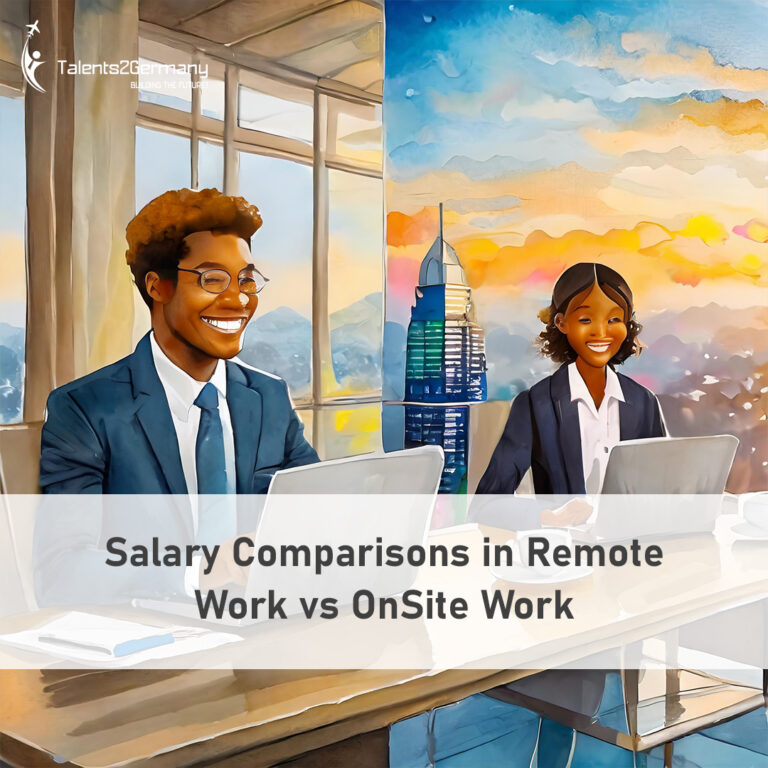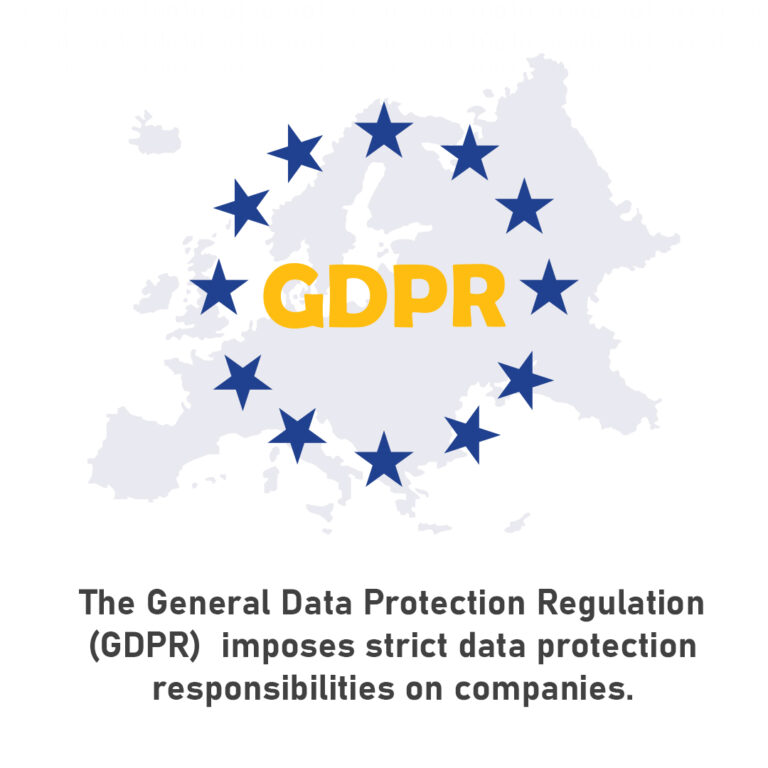Salary Comparisons in remote vs onsite jobs in Germany
Can I earn the same salary working remote jobs in Germany as I would living there? This is one of the common questions we encounter. Talents2Germany specializes in helping software engineers globally to migrate to Germany physically. A burning question for those considering remote vs onsite jobs in Germany is whether they can achieve the same earnings. I’ll be sure to guide you through the answers. Spoiler alert: It’s unlikely to be possible for a considerable time. Stay tuned for some surprising reasons.

Legal Accountability and Remote Jobs Germany
Firstly, legal accountability is a significant factor. To work remotely in Germany, you typically live in a different country. In Germany, a resident committing fraud or misconduct can be legally held accountable due to our efficient legal system. However, this becomes complex when the employee resides under a different legal system, especially outside the EU. The capacity to hold someone accountable for misconduct is significantly reduced. This legal risk affects an employer’s willingness to pay, especially in IT where dealing with sensitive information and company infrastructure is common.
Training and Onboarding Costs
Secondly, consider the costs of training and onboarding. Knowledge work often requires considerable training investment, sometimes up to 6 to 9 months, before a new employee generates ROI. With remote workers, there’s generally a lower sense of loyalty. For example, employees on Onsite jobs in Europe, particularly in smaller towns where the company is a major employer, are less likely to frequently change jobs compared to remote job employees. Therefore, the probability of recuperating high training costs is lower with remote workers, influencing the employer’s willingness to invest in intensive training.

Challenges of GDPR Compliance
Thirdly, the General Data Protection Regulation (GDPR) imposes strict data protection responsibilities on companies. Germany remote jobs or online job settings, adhering to these stringent regulations can be more challenging. Employers are more inclined to pay higher salaries when they can ensure compliance with these regulations, which is often more feasible in a controlled, physical office environment. This factor, combined with the new immigration laws Germany, further influences the employment landscape, shaping the dynamics of salary structures and job opportunities in the country.
Approval of the Federal Employment Agency: This process involves obtaining approval from the German Federal Employment Agency, which is necessary for securing a work visa or residence permit. The pre-approval of the Federal Employment Agency ensures that employment conditions are fair and that the job cannot be filled by an EU citizen.
Nature of Jobs: Remote vs. Onsite jobs in Germany
Fourthly, the nature of jobs in Germany often varies between remote vs onsite jobs in Germany. High-security, intensive knowledge work typically happens in the headquarters, conducted by employees residing in the country. These roles often involve conceptualizing and leading projects and command higher salaries than outsourced tasks. Remote jobs in Germany, on the other hand, often involve less sensitive, lower-risk tasks.
The Human Connection in Workplaces
An additional factor is the human aspect. Employers value the sense of team unity, loyalty, and connection developed over time, often more pronounced in physical work environments. Casual interactions, like brainstorming over a meal, which often
leads to brilliant ideas, are hard to replicate in remote settings. Therefore, employers may be more willing to offer higher salaries to those more integrated with the core team.

Global Competitive Landscape in Remote Work Germany
The competitive landscape for remote work is another significant factor. Remote workers in Germany compete with candidates globally, increasing the supply of potential employees. This global pool affects salary negotiations, as the large supply and intense competition can limit your leverage for a higher salary. Loyalty tends to be lower in remote work settings, impacting attitudes from both employer and employee sides.
The Future of Remote and Onsite Work in Germany
While these factors might evolve with technological advancements and changes in global legal systems, for the foreseeable future, onsite and online jobs in Germany will likely continue offering different software engineer salary in Germany levels. Factors like legal accountability, sensitive work nature, training costs, GDPR compliance, human connection, and global competitiveness all play roles in determining salary levels.
Decision Time: Remote Work or Physical Relocation
Ultimately, whether remote work in Germany is right for you, or if you prefer to migrate to Germany physically, is your choice. If you’re considering relocation, Talents2Germany offers a comprehensive program to assist you. We invite you to explore our offerings and share this information with those who might find it relevant. For those who choose to join us, we look forward to welcoming you to our Talents2Germany program.
Check your Eligibility Now!
 Register: Sign up to get started on your journey with us.
Register: Sign up to get started on your journey with us.
Watch the Videos: Videos designed to elevate your assessment performance.
Take an Assessment: Discover your unique skills with our detailed assessment.
Book your appointment: Make an appointment with us to take the next step in your journey.
FAQs:
Can I earn the same salary working remotely in Germany as living there?
Answer: Unfortunately, it’s unlikely to earn the same salary in remote jobs in Germany as living there, mainly due to legal, training, and loyalty factors.
Why is it hard to have salary parity in remote work in Germany?
Answer: Salary parity is challenging due to legal accountability issues, especially for employees outside Germany, higher training costs, lower employee loyalty, GDPR compliance, and the nature of remote work.
Will the situation of remote work salaries in Germany change in the future?
Answer: The current salary differences may evolve with advances in technology and legal systems, but for now, onsite work and remote work Germany have significantly different salary structures.




